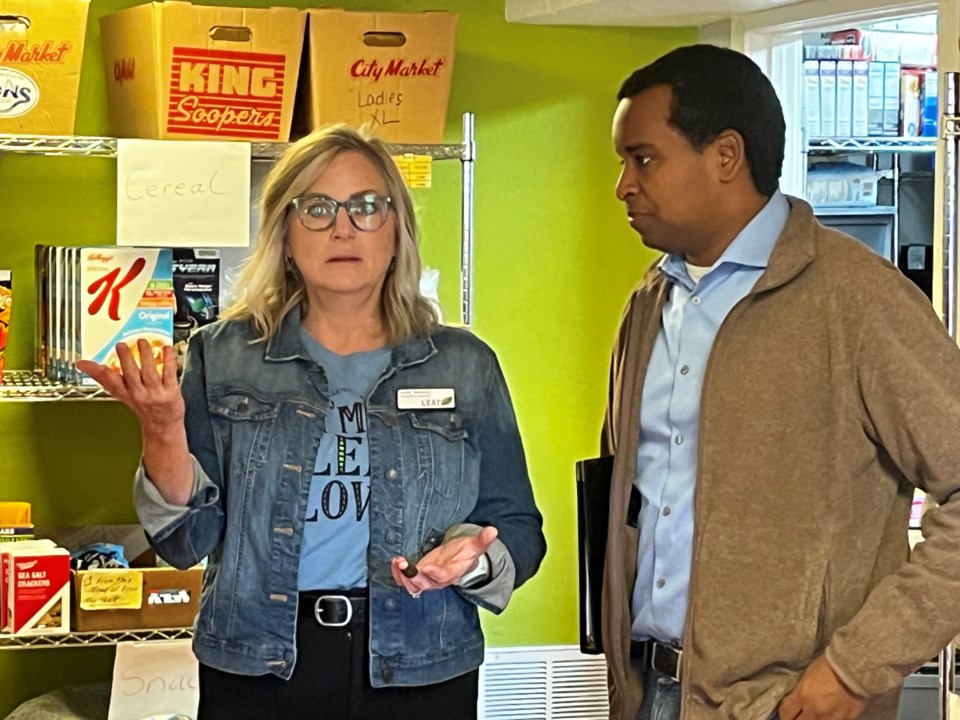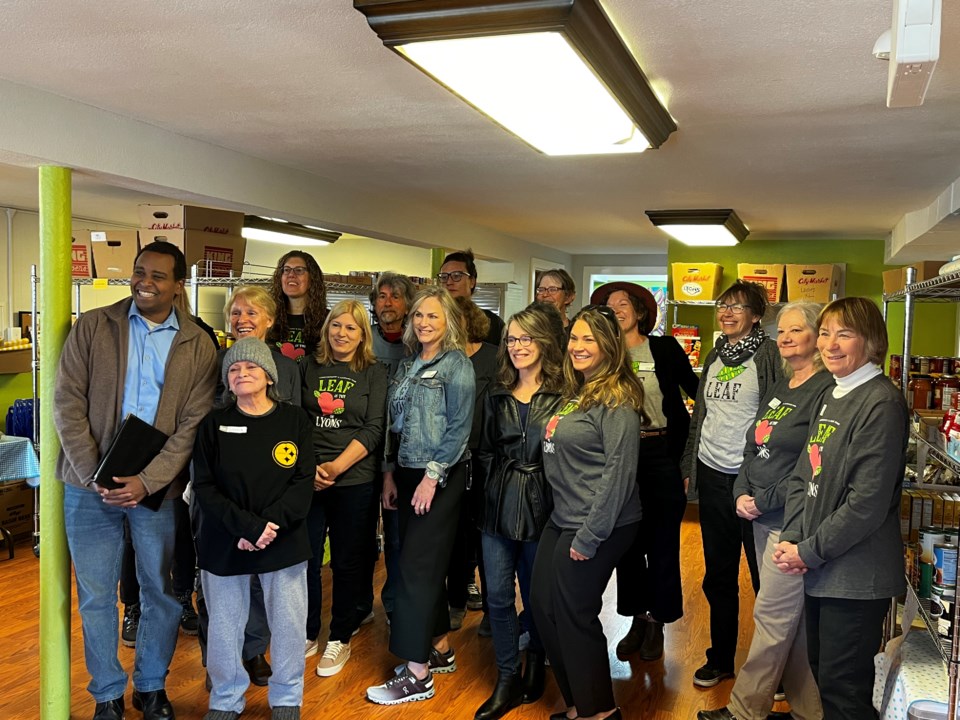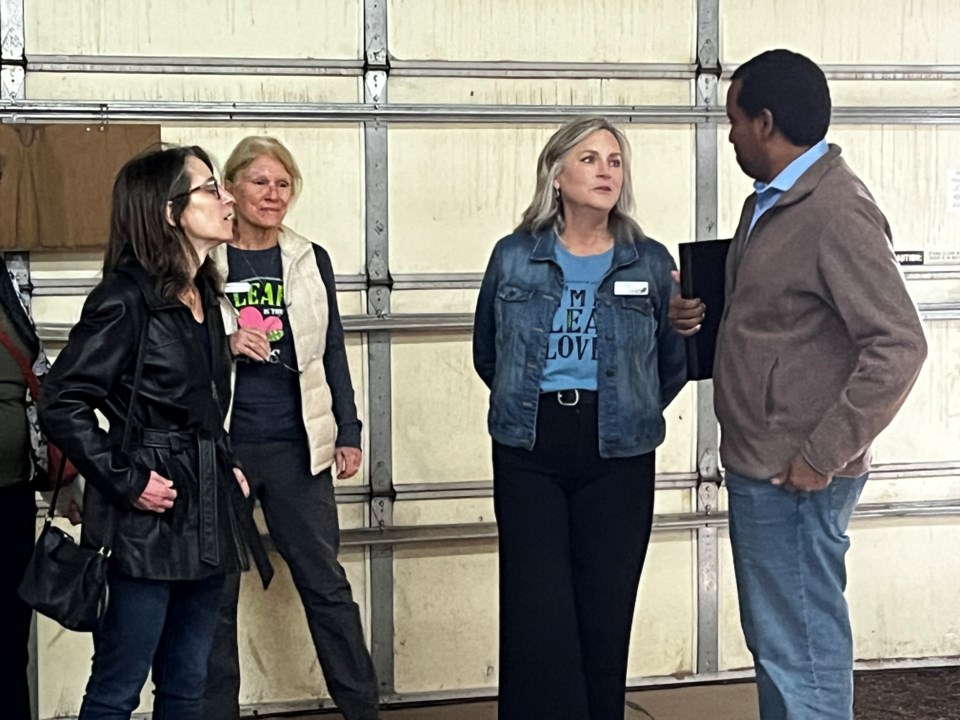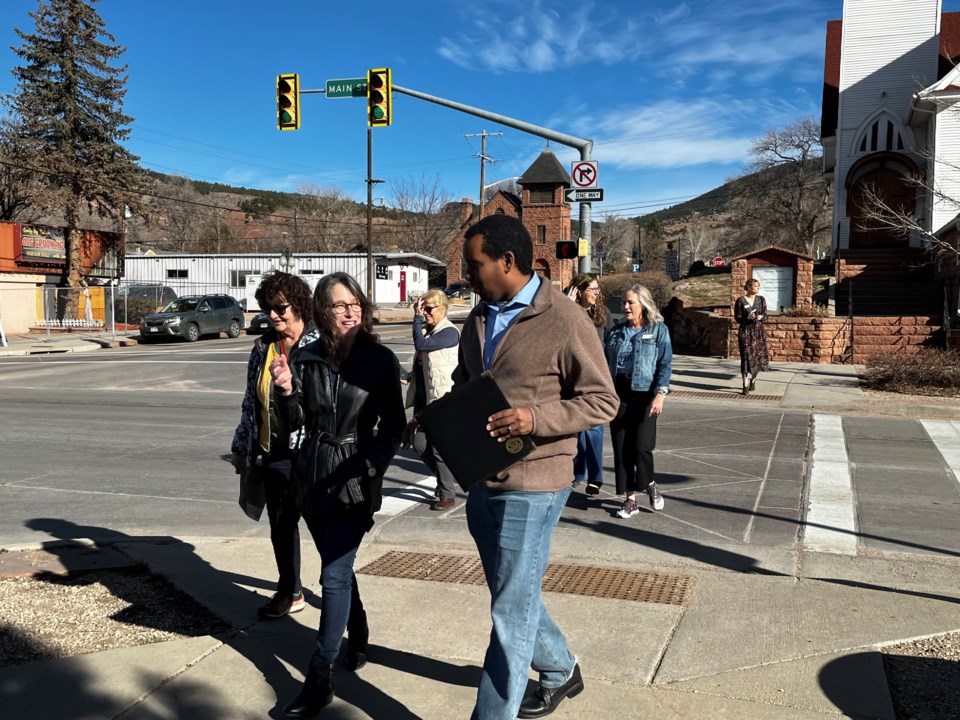Cherie Maureaux, mental health program manager at the Lyons Emergency and Assistance Fund, or LEAF, saw 82 people seeking mental health services last year and has at least 20 more on a waitlist. This is just a fraction of the people who need mental health and food assistance services in the Lyons area. Thanks to a $575,000 grant secured by Rep. Joe Neguse, the Lyons nonprofit will be able to help more of the community.

LEAF began in 2008 in a small room of the Lyons Community Church. The organization set up a food pantry to serve the 1.2 square mile town of Lyons and the surrounding area including Hygiene, Allenspark, Raymond and Ward.
“It is sort of like the OUR Center for the mountain communities except we also offer comprehensive mental health,” said Lory Barton, executive director of LEAF.
Lyons is a very small community and lacks a grocery store or public transportation that would take residents to neighboring cities such as Longmont or Boulder. LEAF opens its food pantry on Wednesdays — 50 weeks of the year — and serves more than 20% of the area’s population.

The church is also growing and needs the space occupied by LEAF. But that isn’t the only reason. LEAF is growing too.
LEAF provides comprehensive wrap-around services including the food pantry, Meals on Wheels, direct financial assistance, mental wellness and addiction services and volunteer services. As the only mental health service provider in the area and the closest place for low-income families to obtain groceries, the small room and limited time at the church no longer meets the community’s needs.
It is also expanding its services to provide adult and youth mental health and addiction services.
With the help of Neguse, LEAF was awarded a $575,000 grant that will be coupled with a $400,000 grant from Boulder County. The funds will be combined to create a $1.2 million community center in Lyons.
The center will be able to dedicate space to its pantry and other services, especially mental health and addiction services, Barton said.
“We have so much gratitude. This little community, between the (2013) flood, COVID and Main Street burning down, the community is tapped and couldn’t even begin to come up with the funds to make this happen,” Barton said.
“We have always endeavored to make sure that the rural and smaller communities in our district have the opportunity to be able to compete for the funding and that they are well represented in the funding projects that we select … What really stood out for us is that this project is a partnership between the nonprofit — which is LEAF — and the town of Lyons and community partners, which you can see because they have one FTE and 269 volunteers. To me it really demonstrates that this is a project that has community behind it,” Neguse said.

In order to make this project happen, the town of Lyons is making some sacrifices.
The town is providing a 99-year lease for the new community center, which will be housed inside an existing warehouse owned by the town. The nonprofit will pay only $1 per year in rent.
The allocated building currently houses the parks equipment and all of the town’s records going back to 1880, according to Mayor Hollie Rogin. Instead of expanding the existing town hall — a plan that has been on the books for a while — Lyons’ officials agreed to create a space within the town hall building to rehouse the records.
“There is definitely some moving around going on but the community and the town board — both this town board and the previous one — are so committed to this that we’re essentially breaking our own rule about creating a 99-year lease. This means we will not be able to expand town hall, we’re constraining ourselves so that we can have this beautiful place,” Rogin said.
Construction on the first-ever community center in Lyons is expected to begin soon, Barton said, with hopes that the renovations will be completed by the end of the year.
The project is still $262,660 away from meeting its fundraising goal. According to Barton, LEAF is seeking out more grants and looking to the community to reach its final goal.
“What more gift can we give to the community than people are struggling, we help them get stabilized, they return to independence, they return in better health — whether it is physical or mental — than when they came. All of that can do is elevate the entire community,” Barton said.



